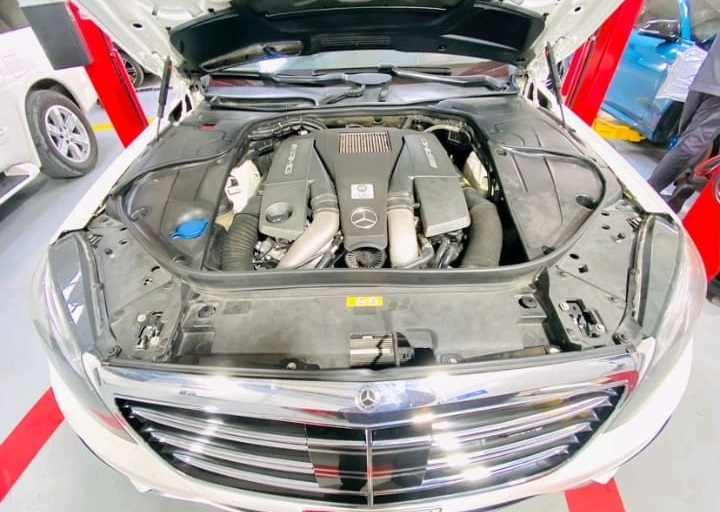Why Isn't My Ac Or Heat Working In My Car

The dreaded moment: you crank the AC on a sweltering summer day, only to be greeted by a lukewarm breeze. Or worse, on a frigid winter morning, the vents stubbornly blow cold air. "Why isn't my AC or heat working?!" It's a question that has plagued drivers for generations, but the answer, and the technology behind it, is evolving at an unprecedented pace.
Beyond Freon: A New Era of Climate Control
For decades, the culprit behind a malfunctioning climate control system was often a simple refrigerant leak or a failing compressor. While these issues still exist, the landscape is becoming significantly more complex, especially with the rise of electric vehicles (EVs) and hybrid systems. Traditional combustion engine vehicles rely on engine heat for cabin heating, a relatively simple and readily available energy source. EVs, however, lack this inherent heat source. This necessitates entirely new approaches to climate control.
Heat pumps are rapidly becoming the standard for EV climate control. These systems work like air conditioners in reverse, extracting heat from the environment (even in cold weather) and transferring it to the cabin. While incredibly efficient, heat pumps are also more intricate than traditional systems. A failure in the refrigerant circuit, the compressor, or even the electronic control system can leave you shivering or sweating. Furthermore, the efficiency of a heat pump can be significantly affected by ambient temperature and humidity, leading to performance variations that require sophisticated control algorithms to manage.
Smart Systems, Smart Problems?
The integration of smart automotive solutions adds another layer of complexity. Modern vehicles are equipped with a multitude of sensors and sophisticated software that manage everything from engine performance to cabin temperature. Your car's climate control system is no longer a standalone entity; it's intricately linked to the vehicle's overall computer network. A faulty sensor, a software glitch, or even a low battery can disrupt the entire system, leaving you with uncomfortable consequences.
Diagnostics are also becoming more sophisticated. While basic issues can still be identified with traditional tools, troubleshooting complex problems in modern climate control systems often requires specialized diagnostic equipment and trained technicians. The days of DIY fixes for AC problems are rapidly fading, especially as vehicles become more technologically advanced.
The Promise of Personalized Comfort and Efficiency
Despite the increased complexity, the future of automotive climate control is bright. Innovations in materials science, sensor technology, and artificial intelligence are paving the way for more efficient, personalized, and environmentally friendly systems. Imagine a future where your car automatically adjusts the temperature and airflow based on your individual preferences, the position of the sun, and even your biometric data. Perhaps sensors in the seats could detect the temperature of your body and make localized adjustments to ensure optimal comfort.
Preconditioning – remotely heating or cooling the cabin before you even enter the vehicle – is already a reality in many EVs. As battery technology improves, preconditioning will become even more widespread and efficient, minimizing the impact on range. Furthermore, advancements in thermal management will allow for more precise control over battery temperature, further enhancing performance and longevity.
Challenges on the Road Ahead
The transition to these advanced systems isn't without its challenges. The increased complexity requires specialized training for technicians, and the cost of repairs could potentially rise. Ensuring the reliability and longevity of these systems, especially in harsh climates, will be crucial. Furthermore, the environmental impact of refrigerants remains a concern. The industry is actively working on developing new, more sustainable refrigerants with lower global warming potential.
Moreover, cybersecurity is becoming increasingly important. As climate control systems become more integrated with the vehicle's network, they also become potential targets for hackers. Protecting these systems from malicious attacks is essential to ensuring the safety and security of drivers and passengers.
A Vision of the Future
Looking ahead, the future of automotive climate control is about more than just keeping you comfortable; it's about optimizing energy efficiency, reducing environmental impact, and enhancing the overall driving experience. We are moving towards a future where climate control systems are not just reactive, but proactive, anticipating your needs and seamlessly adapting to your environment. Imagine vehicles that harvest waste heat from various components and repurpose it for cabin heating, or materials that automatically adjust their thermal properties based on external conditions. The possibilities are endless. The evolution of automotive climate control reflects the broader transformation of mobility – a shift towards a more sustainable, connected, and personalized future. This is a journey driven by innovation, and the destination promises a driving experience unlike anything we've known before.
